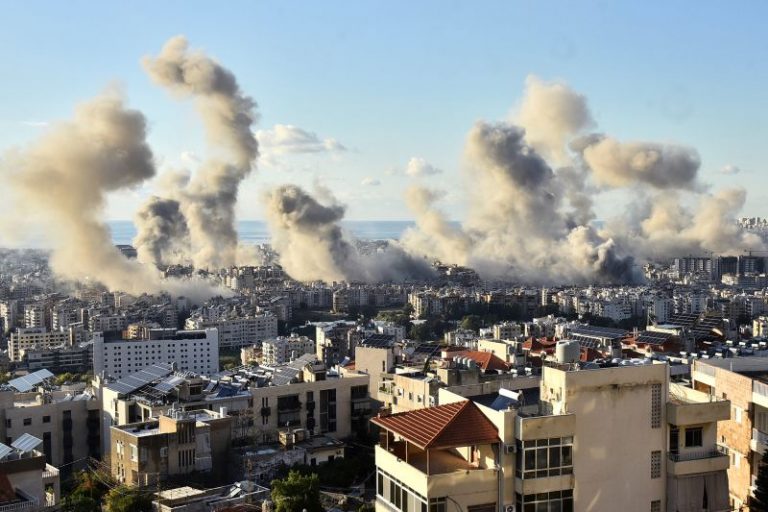While the deal has not yet been officially announced, it is believed that the 60-day cessation of hostilities aims to implement UN Security Council Resolution 1701, with the hope that it could form the basis of a lasting truce.
Resolution 1701 was adopted to end a 34-day war between Israel and Lebanon in 2006, and had kept relative calm in the area for nearly two decades. That lasted until the day after Hamas’ October 7 attack on Israel last year, when Hezbollah attacked in solidarity, beginning more than a year of conflict.
The resolution stipulated that Israel must withdraw all its forces from southern Lebanon, and that the only armed groups present south of the Litani river should be the Lebanese military and UN peacekeeping forces.
In a symbolic milestone earlier Tuesday, Israeli soldiers reached the Litani river for the first time the military began ground operations in Lebanon in September.
In the hours before the vote, Israel drastically stepped up its strikes on Beirut, targeting central areas of the city – not just its Hezbollah-dominated southern suburbs – for the first time in the conflict. At least 10 people were killed in the strikes on central Beirut, the Lebanese Health Ministry said.
In a pre-recorded televised address Tuesday evening, Prime Minister Benjamin Netanyahu said Hezbollah was “no longer the same” after Israel’s offensive, and gave three reasons why he is now pursuing a ceasefire.
First, to allow Israel to “focus on the Iranian threat,” Netanyahu said. Second, to replenish the country’s military forces and equipment, which he said had been depleted in part by “big delays” in the supply of weapons and munitions. And third, to leave Hamas isolated in Gaza, without Hezbollah able to fight alongside it, he said.
Although the deal represents a significant breakthrough – after months of negotiations that a US State Department spokesperson described as “incredibly frustrating” – it is not yet clear whether the deal will lead to a lasting peace.
Before the vote, the deal was met with fury from the more extreme wing of Netanyahu’s coalition, and trepidation from residents of northern Israel, many of whom have been displaced by the conflict, along with residents of southern Lebanon across the border.
Far-right National Security Minister Itamar Ben Gvir on Monday called the deal a “historic mistake” that failed to achieve the war’s main goal of returning displaced Israelis to their homes in the north. Ben Gvir has also long worked to thwart potential ceasefire deals between Israel and Hamas in Gaza.
Mayors of Israel’s northernmost communities were outraged by reports that Netanyahu’s government was set to approve the deal, with one calling it a “surrender agreement” and a “disgrace on a historic scale.”
Avihay Shtern, the mayor the Kiryat Shmona – where Hezbollah fire has forced residents out of their homes – urged Israeli leaders to “stop and think about the children of Kiryat Shmona” before approving the ceasefire deal.
In his address, Netanyahu stressed that Israel will respond “forcefully” if Hezbollah violates the agreement and attempts to rearm.
“If it tries to rebuild terrorist infrastructure near the border, we will attack. If it launches a rocket, if it digs a tunnel, if it brings in a truck carrying rockets, we will attack,” Netanyahu said in a fiery speech.
This story has been updated with additional developments.


